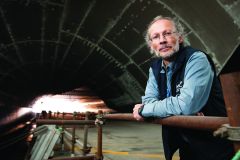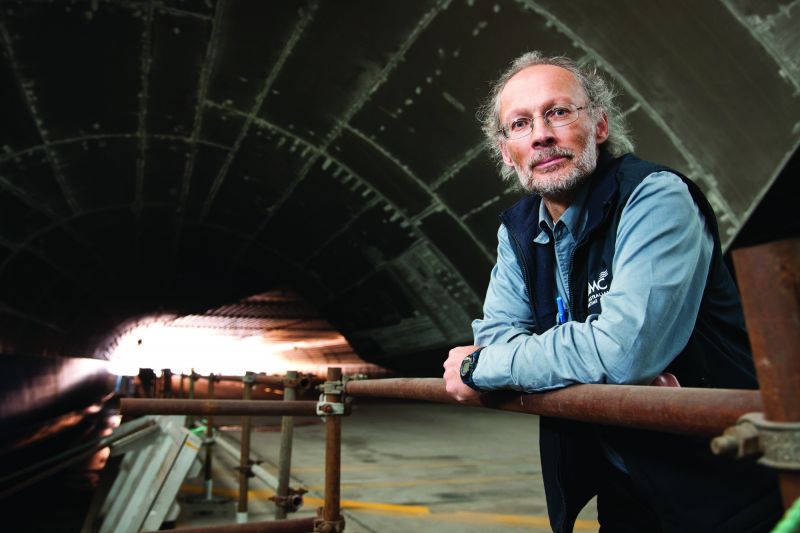Australia’s Defence White Paper heralds a new way of thinking in the defence realm, as changing approaches offer opportunities for our long-standing work with the Navy and maritime defence industries.
This has opened the door for the strengthening of maritime industry connections, which includes defence, at the Newnham campus of the University of Tasmania—a collaboration between industry and university on our campus as an integral part of AMC.
At AMC, our maritime defence industry strengths have been developed over many decades. They include world-leading expertise in cavitation inception and testing that places Australia at the leading-edge in terms of work on noise signatures of naval vessels; nationally-leading expertise in the operation of survey capable autonomous and other robotic underwater vehicles; and the training of Pacific Patrol Boat crews under contract from the Navy.
Furthermore, the Australian Research Council’s Research Training Centre for Naval Design and Manufacturing (RTCDM), was established between AMC, eight industry and defence research members, and two further universities to support the goals of Australia's multi-billion dollar naval shipbuilding program in designing and manufacturing new fleets of submarines, future frigates and patrol craft.
This approach will strengthen Australia’s capacity to meet the needs of the major naval procurement and sustainment programs over next 20-30 years. AMC has the expertise to meet requirements for education and training of naval engineers at Bachelors and Technology levels, as well as upskilling existing mechanical, electrical and electronics engineers through a Master’s program in Naval Engineering.
One of our key aims for the coming year is to expand Australia’s Autonomous Underwater Vehicle (AUV) capabilities. AMC is rapidly developing the largest AUV expertise base in Australia and is expanding this via the procurement of the Antarctic Gateway Project’s ISE Explorer Class, 5,000m-capable AUV, which also supports facilities and sensors. AMC has expertise in the assessment, acquisition, operation and training relating to AUVs for Navy applications, and in the procurement of platforms and their sensors focusing on the non-classified components of AUV operations for Navy use.
A vital part is an industry incubator designed to kick-start innovation in the maritime industry. To date, this has included an AUV simulation capability and the manufacture of seeding materials for advanced flow measurement techniques.
There are attractive opportunities for defence as well as ocean renewable energy, ports, and logistics industries to establish a presence close to AMC’s leading hydrodynamics test and simulation facilities.
AMC has extensive maritime simulation capability for training of navigating officers, pilots, tug masters and seagoing marine engineers. These are being expanded to include simulators to train AUV operators, and the potential for non-classified components for submariners, marine/submarine engine operations and new surface vessel types (e.g. patrol craft).
Consolidating our long history of working with defence and defence industries is key for us and in order to accommodate the increased defence and defence industry demand for AMC’s services, Mr Aaron Ingram (formerly CDRE, RAN) has been appointed as AMC’s Defence Maritime Program Manager.
AMC Principal, Professor Neil Bose.
Published on: 30 Nov 2016

